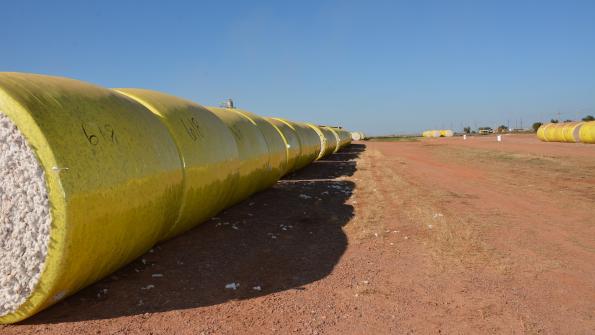December 1, 2016

I am occasionally asked to make recommendations about professional marketing services for cotton farmers. While I wouldn’t start naming names for fear of leaving somebody out, here are some general considerations about getting professional marketing help.
Deciding whether and which professional services are relevant is like asking whether you should do your own home repairs. Doing-it-yourself versus calling a contractor depends on a lot of things.
First, which kinds of services are we talking about? There are some home repairs I can do, and then there are some I am simply not willing or able to fix. Even for things I could tackle, there is the cost consideration. How much time and money would you spend doing it yourself versus outsourcing to a professional? For home repair or marketing, the answer varies from person to person, and it generally only becomes clear with experience.
MARKET INFORMATION
Let’s review the different types of marketing related services and service providers.
The most basic service delivered by many different types of service providers is market information. Cotton price data and important cotton supply and demand variables are published by the USDA and the Intercontinental Exchange (ICE). While publicly available, there is a large enough flow of daily, weekly, and monthly information that it can be a challenge to collect and digest it.
Public and private market analysts, futures brokers, risk management consultants, market advisors, and merchants all provide summaries of the latest market information, typically in newsletters and websites (e.g., see the link at the end of this article).
Market information is frequently provided as a fringe benefit for members or clients of firms that provide other services. There are some newsletters that are subscription-based, including some rather high end providers that also provide original projections and analysis.
FUTURES, OPTIONS
Brokerage services provide an important function to the cotton industry by linking growers, cooperatives, merchants, mills, and speculators to the cotton futures market.
Growers often have their futures and options orders placed through local “introducing” futures brokers, who provide a face, personal interaction, a connection to a major clearing broker, and maybe also advice, technical analysis, and other information services.
At a minimum such a person will have a Series 3 futures license. How knowledgeable they are of the cotton market is something to determine. In the modern world, these brokerage services can also be accessed through a distant, discount broker over the phone or through the internet. Usually, discount brokers will have cheaper commissions, but this comes at the expense of advice or personal interaction. Whether to use a local broker or an internet website depends on a grower’s individual needs and preferences.
CONSULTING, ADVISORY SERVICES
Besides, or maybe in addition to, brokerage services, there are crop-focused firms that provide consulting and advisory services. The licensing and qualifications of such firms are something to determine, as well as a clear understanding of what services are being provided.
The range of services from such firms includes financial planning (requiring licensing), quantitative analysis (market information, forecasting, simulation, hedge performance), developing an individualized marketing/insurance plan, and hands-on (with power of attorney) implementation of the marketing plan.
MERCHANDISING FIRMS
Cotton merchandising firms also provide important services as a market maker for physical cotton. Merchants and marketing cooperatives provide access to the physical market through forward or spot price contracts, basis contracts, and pool marketing agreements.
These contracts also indirectly provide risk management benefits to growers from the futures market, since most merchandising firms hedge their inventory. This is important since our research shows that less than 10 percent of cotton growers use futures and options themselves. Cotton merchandising firms also often provide their clients with information services, and some merchants facilitate futures and options positioning for their clients.
To return to the original question, decisions about professional marketing services involve sizing up what you need, what you can do yourself, and cost considerations. Sometimes the same type of service can be obtained in several different ways.
For example, downside price risk can be managed through a Revenue Protection policy, or through a merchant contract, or through a pool marketing agreement, or through a futures/options strategy, or through some combination of these. Each of these alternatives has a cost that needs to be converted for an apples-to-apples comparison.
For additional thoughts on these and other cotton marketing topics, please visit my weekly on-line newsletter at http://agrilife.org/cottonmarketing/.
About the Author(s)
You May Also Like




